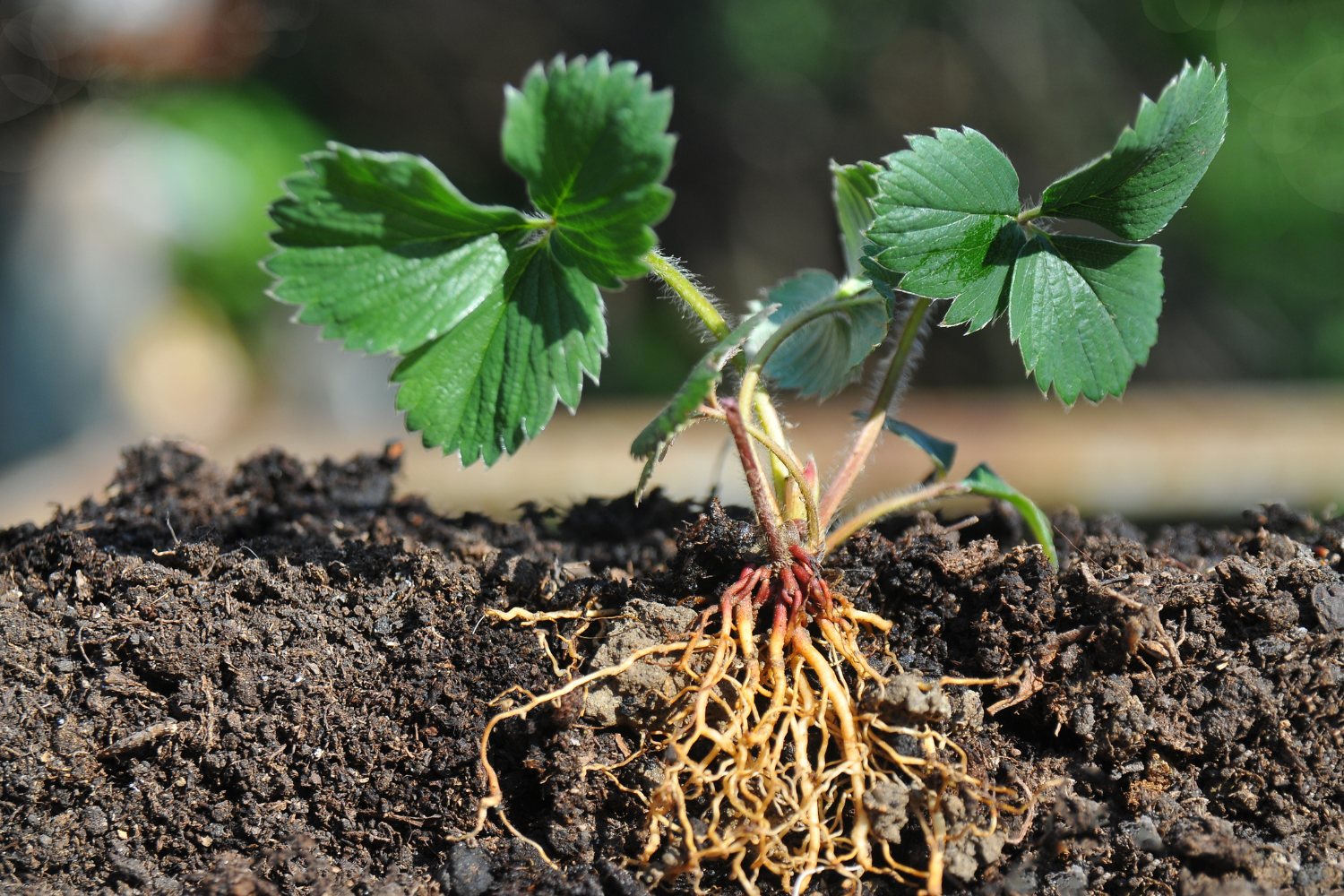How to Grow Healthy Plant Roots for Stunning Vegetables
•Posted on January 04 2023

We interact with the leaves, branches and trunks of trees every day in our gardens and backyards.
We prune, pluck and water at the base to keep them healthy.
But your plant is made of more than what is above ground.
Recommended for You:

The roots require just as much care and pampering to ensure the entire plant grows strong and produces a bountiful harvest.
You want to ensure that your plants have the best roots possible since they literally create the foundation that your plant grows upon.
Read on to learn what causes poor root growth in your plants and some tips on hoe to fix this.
Related Post: The Role of Root Health in Your Plants and How to Improve it
Reasons Why Your Plants Have Poor Root Growth
1. Poor Watering Habits

Irregular watering patterns can make your plant susceptible to poor growth by causing wilting.
Good plant watering should be done daily and at the base of the plants to avoid spreading plant diseases.
Related Post: How to Prep Your Garden for Healthy Root Growth
Most plants in your garden should be watered more during summer months and less during the winter.
2. Poor Fertilizer Application

All plants need good nutritious growth of the leave, roots and branches.
There are targeted fertilizers in the market, like our reliable Chelated Manganese EDTA fertilizer.
Recommended for You:

It is a water-soluble plant nutrient that works wonders for the root system.
Your plant needs manganese for average uninterrupted growth.
In detail, your plant uses manganese to assimilate nitrogen and perform better metabolism and photosynthesis.
The element is also responsible for root cell elongation and resistance to root pathogens.
Our Organic Fish Bone Meal Fertilizer is a reliable fertilizer many farmers prefer.
Its organic properties make it a sought-after ingredient for creating root systems.
You can use this fertilizer on shrubs, flowers and other trees.
Recommended for You:

Not convinced we have one of the best fertilizers for root growth?
Check out our Kelp Meal Fertilizer, designed to help gardeners get their gardens in top-notch shape after each application.
Kelp Meal fertilizer helps stimulate root development and boosts plant growth.
It is also ideal for growing disease-free plants.
Our Kelp Meal fertilizer's composition benefits the plant because it helps the plant absorb calcium and magnesium locked up in the soil.
The best benefit you can get from using Kelp Meal Fertilizer is that it helps prevent plants from going into shock caused by extreme temperatures.
Recommended for You:

If your plants go into shock, they may never grow to their full potential.
Get your plants this fertilizer and watch your plants and soil thrive.
3. Not Loosening or Aerating the Soil

When applying fertilizer, it is essential to lift the soil and aerate it to get things less compacted.
Water-logged soil can slow down root growth or cause plants to die.
You can use a farming tool to get the job done.
Things to Avoid When Caring for Plants

Activities like soil compaction and improper watering can cause damage to delicate roots.
You also do not need too much fertilizer, depending on the type of plants you have as too much fertilizer may lead to more harm than good.
Getting the soil pH wrong when planting is also a big mistake new gardeners make.
Get your soil tested by a professional or you can test your soil at home, yourself!
Fertilizers That Give Your Plants the Best
Give your plant life the best chance at survival by providing holistic care for the roots and everything growing above ground.
As a company, we are dedicated to providing safe and reliable products you can use on your plants.
Shop from our extensive list of organic fertilizers and see the difference in your garden.
Comments
0 Comments
Leave a Comment